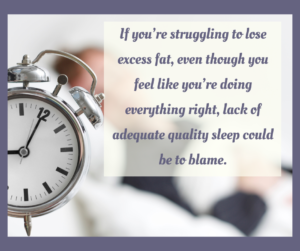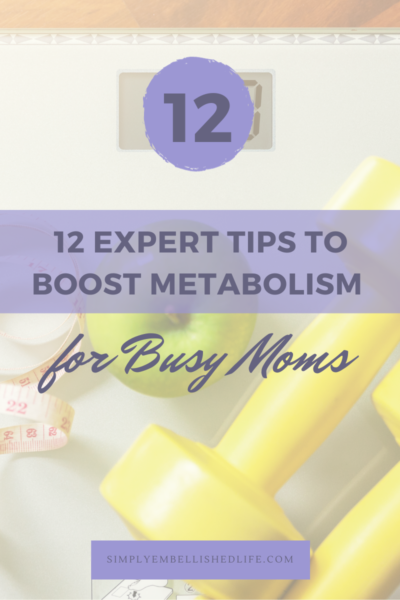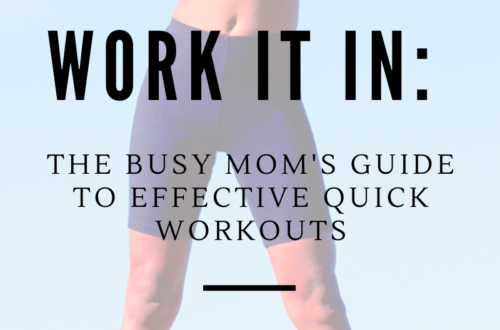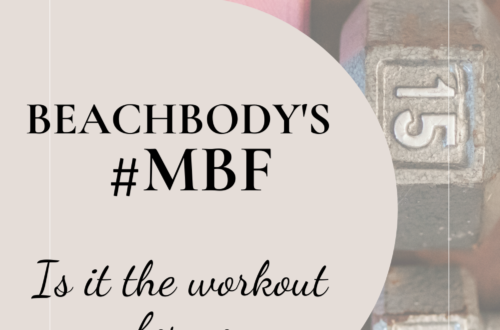We’re not getting any younger and with every passing decade our metabolism seems to slow, making it more difficult to lose the extra weight or maintain a healthy weight. Add being a busy Mom and not feeling like you have the time to work on yourself to the mix and it might seem almost impossible to get where you want to be. But, it doesn’t have to be that way! There are ways to boost metabolism that don’t take all your time and energy.
Want to know what simple things you could be doing to naturally boost metabolism and start feeling like you actually have control over your body and weight? Just keep reading!
Foods that Boost Metabolism
Nutrition can significantly impact metabolism in several ways:
- Protein intake – Eating adequate protein (0.7-1g per pound of body weight) helps build and preserve muscle mass, which directly affects metabolism since more muscle burns more calories.
- Caloric intake – Severely restricting calories slows metabolism over time. Moderately cutting calories while getting proper nutrition speeds metabolism more effectively.
- Meal frequency – Eating smaller, more frequent meals helps keep metabolism revved vs. skipping meals.
- Balanced meals – Eating a balanced meal with carbs, protein, and fat supports metabolism vs. restrictive diets.
- Fiber intake – Getting adequate fiber from whole grains, fruits, and vegetables helps increase fat burning.
- Iron, zinc, selenium – Key minerals support thyroid and other functions that regulate metabolism.
- Caffeine/spicy foods – Caffeine, green tea, and spices temporarily increase metabolism.
Overall, a diet high in lean proteins, fiber, nutrients, and proper calories spaced throughout the day supports a healthy, efficient metabolism. Having a diet high in processed foods, sugar, and unhealthy fats tends to slow metabolism. Our bodies don’t run effectively if we don’t fuel them properly.
If you want to boost metabolism you need to give your body what it needs to function properly.
Stress and Metabolism
Stress can negatively impact metabolism in several ways:
- Cortisol – Chronic stress leads to elevated cortisol levels, which can increase appetite, cravings, and fat storage around the abdomen. This promotes weight gain and slower metabolism.
- Inflammation – Stress triggers inflammatory responses in the body which are linked to metabolic diseases like diabetes and obesity. This can impair metabolism over time.
- Sleep loss – Stress can lead to poor sleep, which is tied to an increase in cortisol which affects appetite and the bodies ability to burn fat
- Hormones – Stress raises adrenaline and lowers testosterone. This shift encourages fat storage versus building muscle, which burns fewer calories at rest.
- Blood sugar – Stress hormones can raise blood sugar levels, which can damage metabolism-regulating tissues like the pancreas if prolonged.
- Fatigue – Ongoing stress is exhausting, which reduces motivation and energy to exercise regularly, or take care of yourself in general, further slowing metabolism.
- Poor food choices – Stress often leads to grabbing quick, processed, sugary foods which negatively impact metabolism as mentioned above.
- Digestion – Stress can impair proper digestion and gut health. Poor gut health is tied to reduced metabolic function. Consuming foods that fuel our bodies is great, but if our bodies can’t digest them properly we won’t get the benefits they provide.

Learning effective stress management strategies like meditation, exercise, social support, and time management can help lower stress and minimize these impacts on metabolism. Selfcare isn’t a luxury, it’s a must when trying to live a healthy lifestyle and boost metabolism.
The Most Effective Exercise To Boost Metabolism
Here are some of the top types of exercise that boost metabolism the most:
- High Intensity Interval Training (HIIT) – HIIT workouts alternate intense bursts of activity with short rest periods. This intense exertion revs up metabolism and burns more calories, even after the workout ends.
- Strength Training – Lifting weights builds muscle mass. More muscle mass equals a higher resting metabolic rate, meaning you burn more calories throughout the day. Compound exercises like squats, deadlifts, and push-ups are most effective.
- Sprinting – All-out intense sprints significantly increase EPOC (post exercise oxygen consumption) which elevates metabolism for hours after the sprint workout ends.
- Kettlebell Training – The unique full body movement patterns of kettlebells provide both cardio and resistance training. This combination stokes metabolism.
- Jumping Rope – This intense cardiovascular jump rope workout torches calories and keeps metabolism fired up.
- Burpees – Burpees combine power, strength, and speed endurance. Performing these demanding full-body moves gets metabolism racing.
- Hill Sprints – Running up steep hills recruits maximum muscle fibers and is very metabolically demanding, boosting post-workout calorie burn.
- Bodyweight Workouts – Vigorous circuits or Tabata workouts using calisthenics like push-ups, squats, and lunges can really spike metabolism.
The key is to incorporate intense full-body movements that maximize exertion and engage both large and small muscle groups. Workouts should combine cardio and resistance training to really boost metabolism
Don’t let high intensity scare you. Don’t compare someone else’s high intensity exercises to your own. As long as it feels challenging to you is what matters, whether that’s a body weight squat or lifting 100 lbs while squating.
Sleep and Weight Management
Lack of sleep can significantly disrupt metabolism in several ways:
- Appetite hormones – Sleep deprivation increases ghrelin (stimulates appetite) and decreases leptin (induces satiety), leading to more hunger and overeating.
- Insulin resistance – Lack of sleep impairs glucose metabolism, raising insulin resistance and risk of weight gain/diabetes.
- Fatigue – Being tired from poor sleep decreases motivation for exercise needed to build muscle and burn calories.
- Cortisol – Elevated cortisol from sleep loss promotes visceral fat storage, especially around the abdomen.
- Circadian rhythms – Disrupted circadian rhythms from inadequate sleep slows the body’s metabolic rate.
- Growth hormone – Deep stages of sleep are when growth hormone is released to build muscle. Without enough sleep, muscle-building is impacted.
- Inflammation – Sleep loss is linked to increased inflammatory markers which are tied to obesity and other metabolic diseases.

Aim for 7-9 hours of quality sleep per night. Improving sleep duration and consistency can help optimize key hormones, reduce inflammation, encourage physical activity, and regulate circadian rhythms – all of which support a healthy metabolism.
Moving isn’t the only way to boost metabolism. Rest and proper sleep are just as important!
Hydration and Weight Loss
Staying properly hydrated can provide a surprising metabolic boost in several ways:
- Energy levels – Being well-hydrated keeps energy levels higher, allowing you to be more active which burns calories. Even mild dehydration causes fatigue. If you’re not tired, you’re less likely to skip workouts and you’ll put more effort into them when you don’t skip them.
- Digestion – Water enhances digestion and nutrient absorption. Proper digestion and nutrition uptake supports metabolic processes. Although, it more beneficial to drink your water when you’re not having a meal. Give yourself a half an hour window before and after meals without drinking anything.
- Liver and kidney function – Hydration allows liver and kidneys to efficiently perform their cleaning and fat-burning duties. Dehydration overworks these organs.
- Body temperature – Drinking adequate water helps regulate body temperature. Maintaining a lower core temperature during workouts helps optimize calorie burn.
- Muscle performance – Hydration keeps muscles fueled and body cooled during exercise. This allows for longer, harder workouts that boost metabolism.
- Circulation – Well-hydrated blood flows more easily through vessels, improving circulation. Better blood flow helps muscles function at a higher level.
- Hormone optimization – Water helps balance electrolytes and body systems that produce metabolism-regulating hormones.
Aim to drink at least half your body weight in ounces per day – more if you exercise or sweat a lot. Proper water intake combined with an active lifestyle compounds the metabolic benefits. Even mild dehydration can slow your metabolism’s fat-burning potential. Water is absolutely essential for the body to function properly.
If you feel thirsty, then you’re probably already dehydrated. Not sure if you’re getting enough? How does your urine look. If it’s not light yellow to clear, keep drinking! The earlier in the day you start the better. If you drink too much before bed time you’ll end up disrupting your sleep to get up and use the bathroom and you now know how important sleep is also.
How To Keep It Simple
If you remember, I said that there were simple ways to boost metabolism. If you just read through the list and are feeling overwhelmed because you might need a little work on all of these things, don’t stress. Remember stress isn’t good for you metabolism.
Living a healthier lifestyle isn’t a sprint. It’s a lifelong journey. So don’t feel like you have to make changes in every area mentioned above right now. Pick one thing at a time. What’s the easiest thing for you to improve on right now? Start there! When you feel comfortable with that move on to another habit change.
Slow progress is always better than no progress because you got frustrated and gave up, right?
If you’re a busy Mom and you want some support and guidance in your journey to better health, book a call. I’d be happy to give you a free consult and help get you started. Let’s chat!
If you’d like to get more simple tips and information on how to look and feel your best, don’t forget to subscribe!






